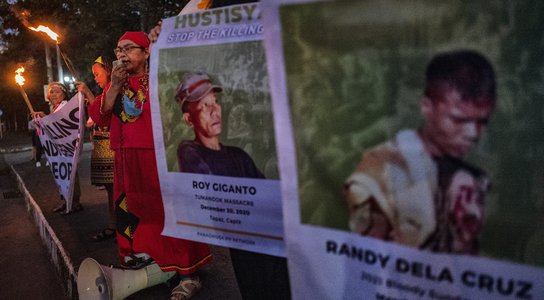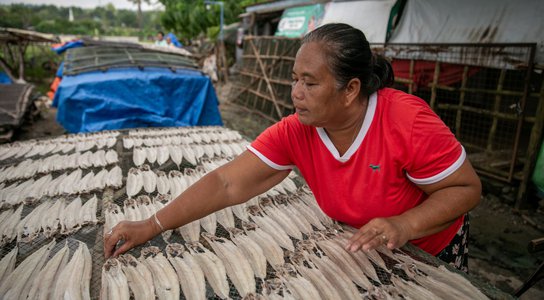Global Witness is concerned by the news that our Filipino partner Kalikasan and the Center for Environmental Concerns are suffering a fresh wave of surveillance and red-tagging amidst a spate of arrests of land and environmental defenders.
In the Philippines, ‘red-tagging’ has become a sinister tactic used to intimidate, defame and vilify legitimate activists for their work. The criminalisation of activists through tactics such as red-tagging is often used as a pretence for arrest and can increase the likelihood of an attack. This mirrors a trend of criminalisation of land rights and environmental activism not only in the Philippines but globally.
This recent attempt follows an ongoing pattern, with both organisations reporting repeated surveillance, red-tagging, and even threats to raid their offices in 2019. They are believed to be targets because of their work supporting communities and environmental defenders to protect their rights, and challenging destructive extractive and infrastructure projects damaging the environment.
Global Witness wishes to express its support for these organisations and calls upon the Philippines government to guarantee the security of their staff and members and ensure that due process is followed in any and all judicial processes brought against rights activists in the country. We also call on the UK embassy present in the Philippines to act on its commitments to support defenders by raising its concerns over the harassment and criminalisation of environmental organisations with the incoming administration, and to take action to support at risk land and environmental defenders.
Notes:
The Criminalisation of Land and Environmental Defenders
Criminalisation takes many different forms. At its simplest, it means creating, changing or re-interpreting laws so as to make once legitimate activities illegal, and turn those doing them into criminals. Legal threats can be used by governments and companies to intimidate defenders, tarnish their reputations and lock them into costly court battles which hamper their work. New laws can be created to restrict or criminalise protest and freedom of expression. And existing legislation designed to stop terrorists or protect national security can be twisted and used inappropriately against defenders.
These legal battles are generally heavily mismatched. Armies of well-paid lawyers often face off against farmers or indigenous leaders of remote communities, who may have little formal education or knowledge of their rights.
Once charged, defenders are stigmatised publicly, branded as terrorists or criminals by their government and the media it often controls. Ultimately, criminalisation is another way in which defenders and their families are abused and intimidated by the people and institutions that are meant to protect them.
Criminalising defenders in this way makes attacks on them seem legitimate, making them more likely. These trends continue across the globe, helped by populist politicians who are stripping away vital environmental protections


